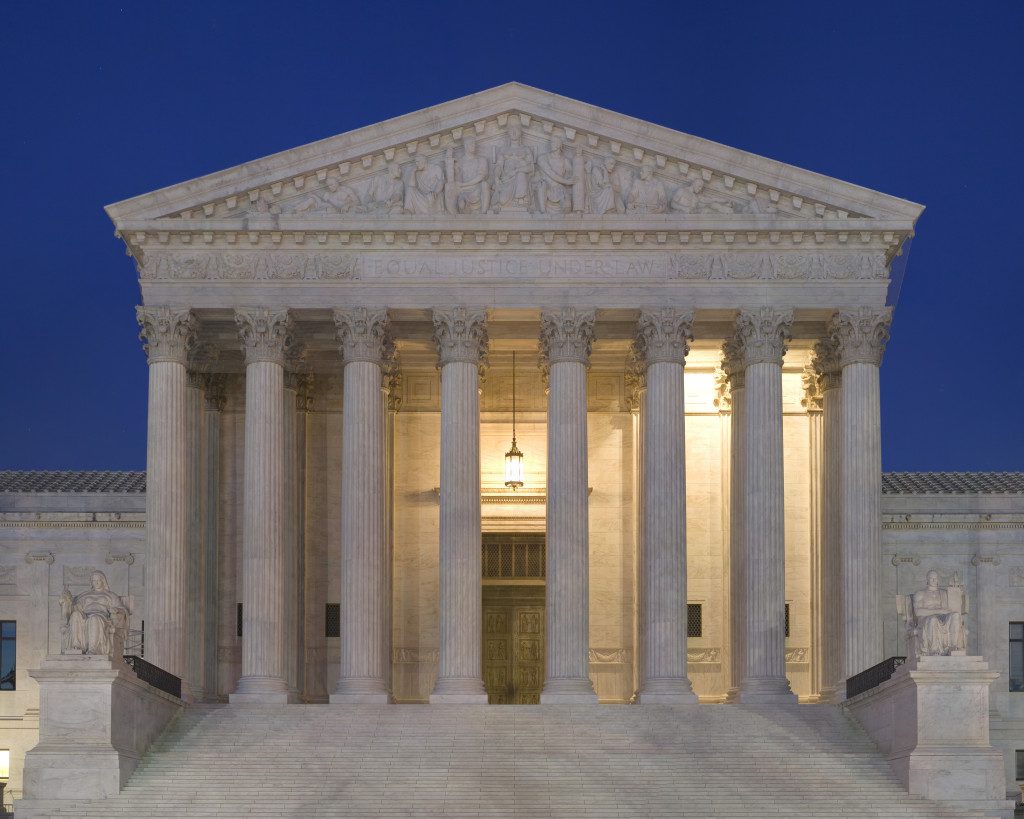When a lesbian couple had a child through artificial insemination, the non-birth mother adopted the child in Georgia. The couple then moved to Alabama and later split. The birth mother wanted to end the parental rights of the adoptive mother by saying that Alabama didn’t have to recognize the Georgia adoption. The Alabama Supreme Court agreed with her and refused to recognize the Georgia adoption saying that Georgia should have never allowed an adoption by a same-sex couple.
In an unprecedented ruling, the United States Supreme Court, on March 7, 2016, summarily reversed the Alabama Supreme Court decision. On e of the attorneys for the adoptive parent, Cathy Sakimura, wrote, “It was unanimous, with no dissenting opinion from any justice… sending the strongest possible message rejecting the Alabama Supreme Court’s attempt to unsettle the stability of adoptions by LGBT parents.”
e of the attorneys for the adoptive parent, Cathy Sakimura, wrote, “It was unanimous, with no dissenting opinion from any justice… sending the strongest possible message rejecting the Alabama Supreme Court’s attempt to unsettle the stability of adoptions by LGBT parents.”
The Alabama ruling is unique in that it was the first time in the history of our nation that a state failed to recognize the adoption of a child that was done in another state. Knowing that allowing that type of decision to stand risked creating disharmony (and even chaos) in our legal system, the United States Supreme Court had to step in and reverse the decision. Otherwise other lower courts might similarly completely disregard the parental rights of adoptive LGBT parents.
In its ruling, the US Supreme Court summed it up this way: “A State may not disregard the judgment of a sister State because it disagrees with the reasoning underlying the judgment or deems it to be wrong on the merits.” In other words, just because you don’t like it doesn’t give you the right to say that it doesn’t exist.
This unanimous decision sends a crystal-clear message that same sex parents are entitled to equal protection under the law.










